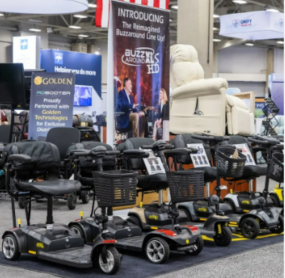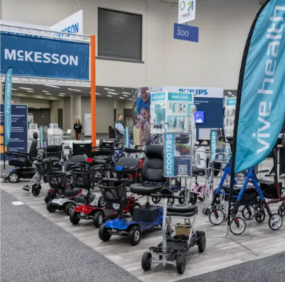Views: 0 Author: Site Editor Publish Time: 2025-05-05 Origin: Site









Keeping a wheelchair in optimal condition is critical—not just for comfort and mobility, but also for user safety, especially when using a folding wheelchair. Whether you're caring for a senior loved one, managing your own mobility equipment, or traveling frequently with a foldable model, knowing how often to service a wheelchair can help extend its lifespan and prevent costly repairs or accidents.
This guide dives deep into the topic of wheelchair servicing, with a special focus on folding wheelchairs. We'll explore how often you should clean and maintain your chair, how to check its parts, and what to look for to ensure it's safe for everyday use. This article also answers common questions about folding electric wheelchair travel, maintenance tips, and how to keep your equipment running smoothly.Let’s take a closer look at everything you need to know about maintaining a folding wheelchair—from service schedules to safety strategies and beyond.
Folding wheelchairs, including manual and electric models, are designed for portability and ease of storage. These chairs fold up compactly, making them ideal for travel, home use, or public transportation. But because they’re used frequently and folded/unfolded often, they’re subject to more wear and tear than rigid models.
Whether you're using a lightweight folding wheelchair, a folding electric power wheelchair, or a carbon fiber folding wheelchair, regular upkeep ensures that your chair remains safe, functional, and comfortable.
Failing to service a wheelchair regularly can lead to:
Reduced maneuverability
Flat or worn-out tires
Loose bolts and unstable frames
Brake failure
Electrical issues in electric folding wheelchair models
So, how often should you service your folding wheelchair? The answer depends on usage, terrain, and whether you're using a manual or powered model.
| Wheelchair Type | Light Use (indoors only) | Moderate Use (indoor/outdoor) | Heavy Daily Use |
|---|---|---|---|
| Manual Folding Wheelchair | Every 6 months | Every 3–4 months | Every 2–3 months |
| Electric Folding Wheelchair | Every 4–6 months | Every 3 months | Monthly |
| Lightweight Folding Wheelchair | Every 6 months | Every 4 months | Every 2–3 months |
Folding electric wheelchair models require more frequent checks due to their motors, batteries, and electronics. Manual wheelchairs have fewer moving parts, but still require regular attention to wheels, frames, and brakes.
Regular maintenance ensures your wheelchair operates smoothly and safely. Here are the main components to inspect:
Folding wheelchairs rely on a cross-brace or hinge system. Check that the folding mechanism operates smoothly, without sticking or grinding. If you notice resistance when folding or unfolding, lubricate the joints or consult a technician.
Also, inspect the frame for cracks or dents—especially in lightweight folding wheelchair models made from aluminum alloy or carbon fiber.
The wheels are among the most used parts. Check for:
Uneven tire wear
Low air pressure (for pneumatic tires)
Wobbling or misalignment
Debris stuck in the wheels
If you're using a folding light wheelchair or fold away wheelchair outdoors often, the tires may wear faster. Electric folding wheelchair users should also ensure the motorized wheels are functioning correctly.
Test the brakes every few weeks. Make sure:
The brakes engage fully and hold the chair in place
No loose bolts or parts
Brake pads are not overly worn
Comfort is key—especially for daily or long-term users. Check the seat cushion, backrest, and armrests for signs of wear. A padded seat may flatten over time and should be replaced to prevent pressure sores.
If you're using a power folding wheelchair, inspect the battery for:
Charging issues
Overheating
Reduced battery life
Corrosion on terminals
It’s also advisable to use a manufacturer-approved charger and avoid overcharging.
Cleaning is part of maintenance. A clean folding wheelchair not only looks better but also functions more efficiently. Most experts recommend cleaning your wheelchair at least once every two weeks—or more frequently if used outdoors.
Wipe down the frame with a damp cloth to remove dirt and dust
Use mild soap and water on upholstery (avoid harsh chemicals)
Dry all parts thoroughly to prevent rust
Remove debris from wheels and caster forks
If you use a folding wheelchair ramp often, be sure to clean both the ramp and your wheelchair to avoid tracking in dirt that could damage the wheels.
Electric folding wheelchair models require extra care. These chairs include motors, joysticks, batteries, and wiring that need regular inspection.
Tips for maintaining your folding electric wheelchair:
Keep batteries fully charged but avoid overcharging
Store indoors in a dry, clean space
Avoid exposure to rain or moisture
Inspect the joystick for responsiveness
Check all electrical connections monthly
For high-capacity models like the folding electric wheelchair 400 lb capacity, ensure the frame and motor are inspected more frequently, as they endure higher loads.


Not sure if your chair needs professional attention? Here are signs you shouldn’t ignore:
Squeaky or grinding noises during movement
Difficulty folding or unfolding
Loose or missing bolts
Jerky or unresponsive controls on electric models
Reduced battery range
Brake failure or reduced stopping power
Chair doesn’t track straight
If you notice any of the above, it’s time to have your wheelchair serviced by a qualified technician.
Regular wheelchair servicing is more than just upkeep—it’s a safety requirement. Seniors, people with disabilities, and long-term wheelchair users are at higher risk for injury if their mobility device fails. For folding wheelchair users who travel often, a sudden malfunction can be particularly dangerous.
Servicing your wheelchair regularly helps:
Prevent falls and tipping
Extend the life of the chair
Improve user comfort
Ensure compliance with airline or facility safety standards
Whether you’re using a fold n go wheelchair, fold up electric wheelchair, or a manual model, safety should be the top priority.
Frequent travelers often ask about bringing their folding wheelchair on flights. The good news? Most airlines accommodate all types of wheelchairs, especially folding electric lightweight wheelchair models that can be stored easily.
If you're using a folding wheelchair for travel, be sure to:
Inform the airline in advance
Attach a folding wheelchair cover to protect it during transport
Use a folding ramp for wheelchair loading if needed
Carry removable parts (joystick, cushions) in your carry-on
Charge your electric folding wheelchair fully before flying
Remove and store the battery according to airline regulations
Inspect for damage after landing
Clean the wheels if used in airport terminals
Low-maintenance options are ideal for frequent users. When shopping for a folding wheelchair, look for:
Lightweight materials like aluminum alloy or carbon fiber
Easy-fold mechanisms (check out fold and go electric wheelchair models)
Durable tires and low-maintenance bearings
Accessible batteries and removable components
RichAll Medical offers a wide range of folding wheelchairs for sale that are built with maintenance in mind. Whether you need a manual wheelchair, a fold wheelchair for seniors, or the best folding electric wheelchair for long-term use, their product line includes durable and easy-to-maintain models.
| Wheelchair Model Type | Maintenance Difficulty | Ideal For |
|---|---|---|
| Manual Folding Wheelchair | Low | Occasional users |
| Lightweight Folding Wheelchair | Low | Seniors, travelers |
| Folding Electric Power Wheelchair | Moderate | Daily users with mobility issues |
| Folding Electric Wheelchair 400 lb | High | Bariatric users |
| Carbon Fiber Folding Wheelchair | Low | Frequent flyers |
| Electric Lightweight Folding Wheelchair | Moderate | Seniors needing powered mobility |
Q1: Can you take a folding wheelchair on a plane?
A1: Yes, most folding wheelchairs, including folding electric wheelchair models, can be taken on planes. Inform the airline in advance and follow their guidelines for battery-powered chairs.
Q2: How much does it cost to take a wheelchair on a plane?
A2: Airlines typically allow wheelchairs to be checked or brought onboard at no additional cost. However, services like wheelchair assistance or special transport may vary by carrier.
Q3: What maintenance does a wheelchair need?
A3: Regular maintenance includes cleaning, checking the folding mechanism, inspecting wheels and brakes, and ensuring batteries (for electric chairs) are functioning properly.
Q4: Do manual wheelchairs need to be serviced?
A4: Yes, even manual folding wheelchairs require servicing. While they have fewer components, regular inspection of tires, brakes, and frames is essential for safety.
Q5: How often should a wheelchair be cleaned?
A5: Ideally, a wheelchair should be cleaned every 1–2 weeks. More frequent cleaning is recommended if used outdoors or in healthcare settings.
Q6: What is important for safety when a patient is in a wheelchair?
A6: Key safety considerations include functioning brakes, proper seating posture, secure footrests, and regular maintenance of the folding and locking systems.
Q7: How do you check a wheelchair?
A7: Check for loose parts, worn tires, brake responsiveness, frame integrity, and folding mechanism operation. For powered chairs, inspect the electronics and battery connections.
A folding wheelchair is a vital mobility aid that, when properly maintained, offers freedom, independence, and safety. Whether you're using a lightweight folding power wheelchair or a simple manual chair, regular servicing ensures your equipment stays in top condition. From cleaning and battery checks to airline travel and folding wheelchair ramps, maintenance is a small task that delivers big results over time.
If you're looking for a reliable, low-maintenance folding wheelchair, RichAll Medical offers an extensive selection, including the best lightweight folding electric wheelchair models designed for convenience, travel, and long-term use. Prioritize regular service, and your wheelchair will serve you well for years to come.
